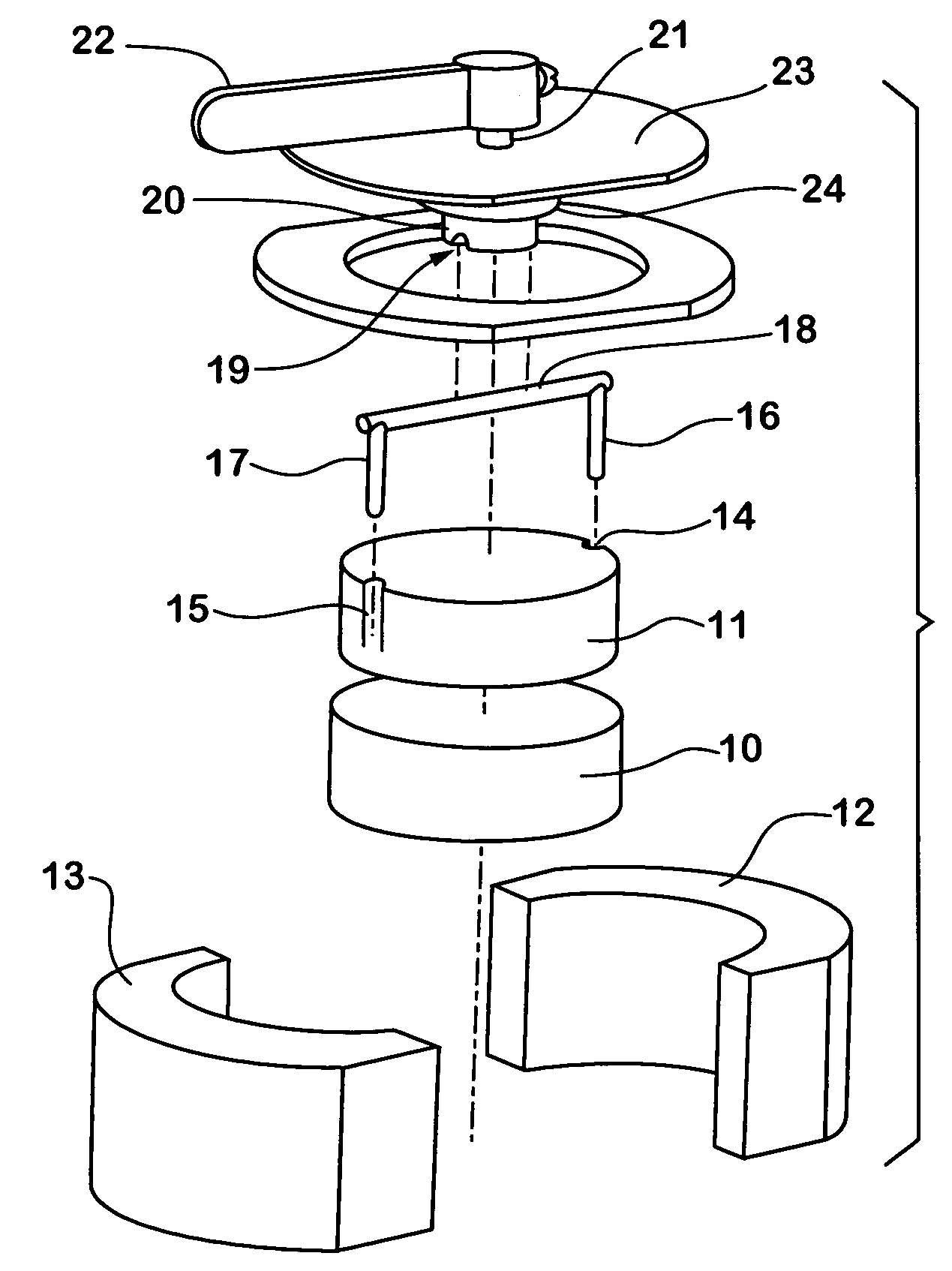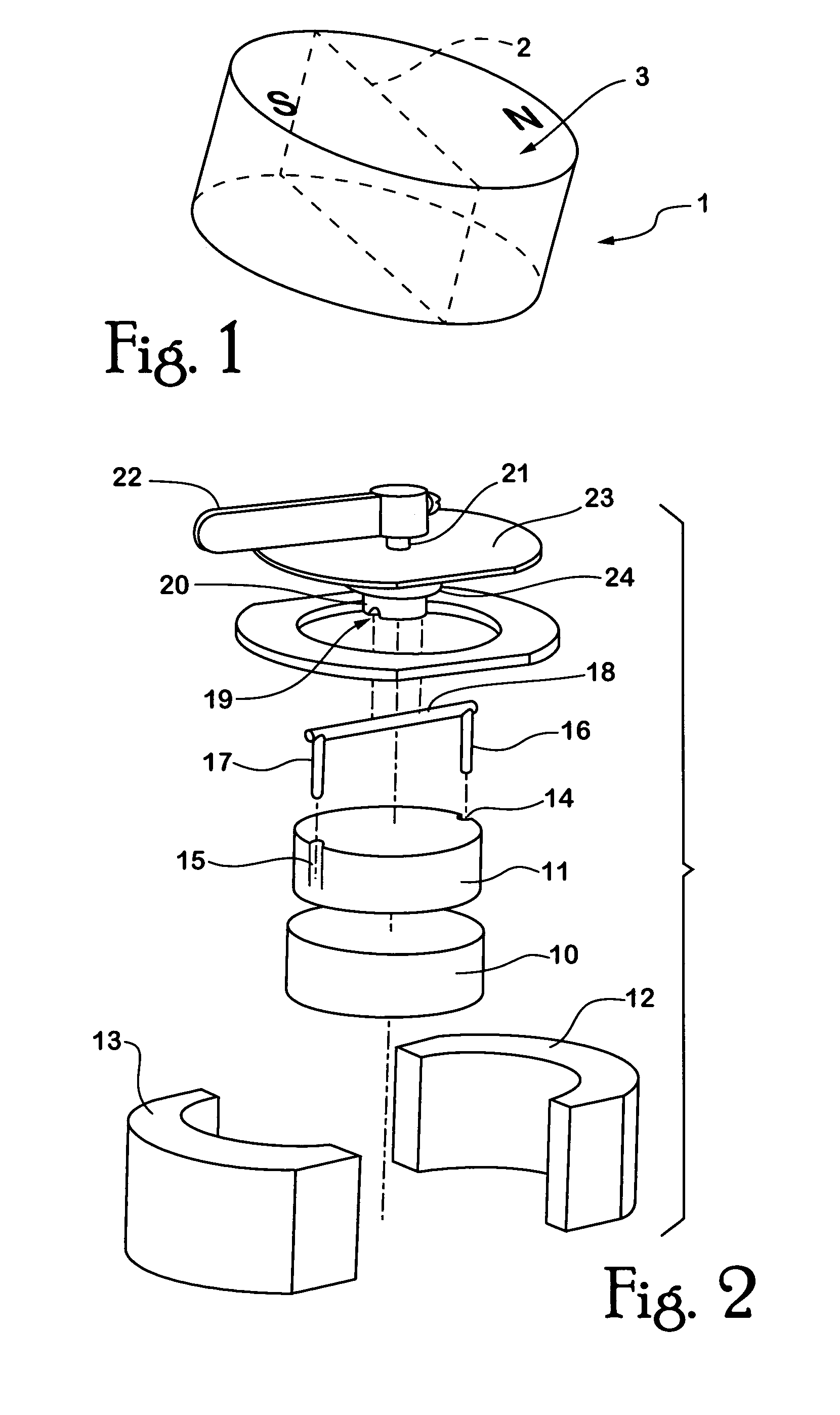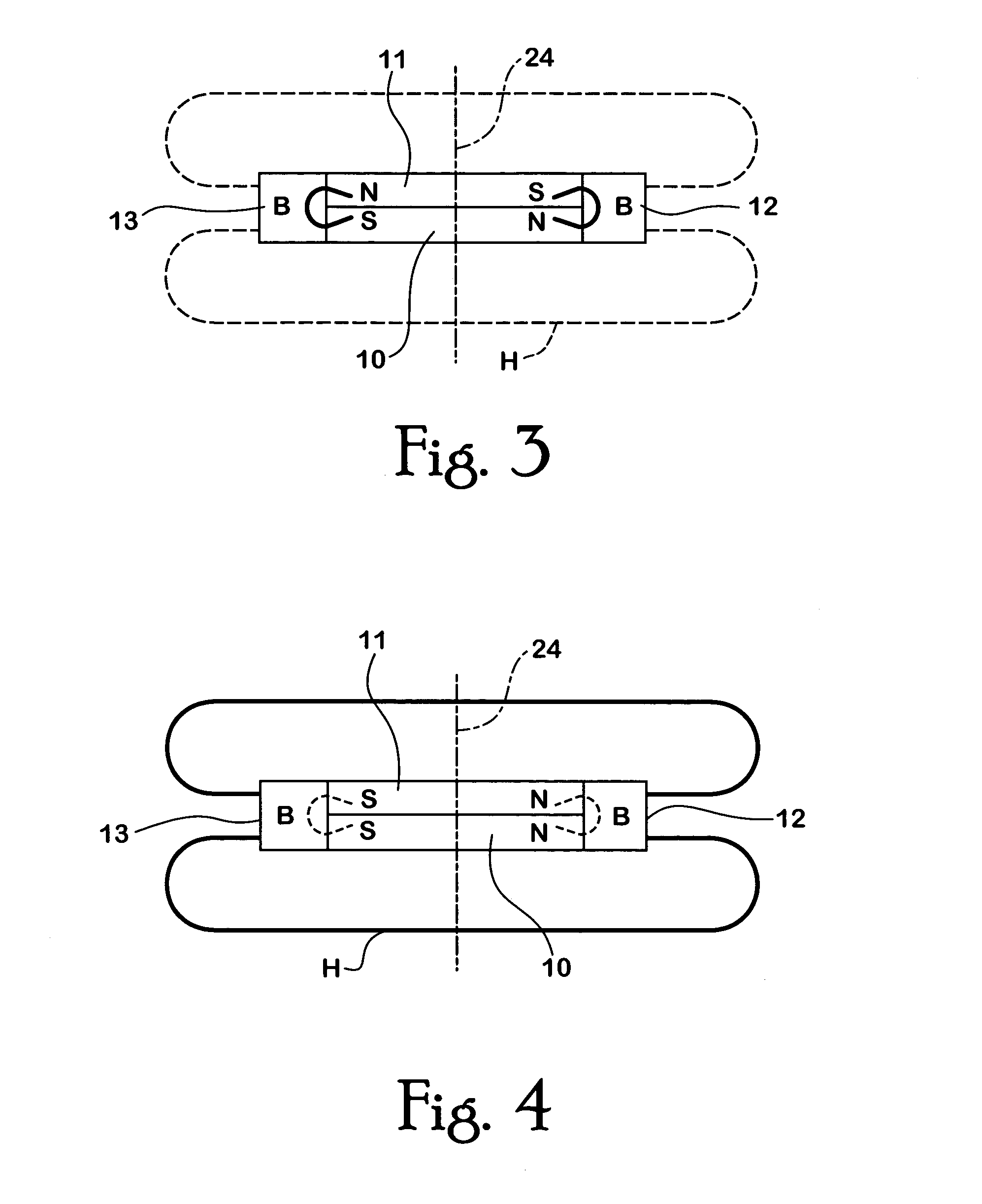Switchable permanent magnetic device
a permanent magnet, switchable technology, applied in the direction of magnets, magnet bodies, manufacturing tools, etc., can solve the problems of fixed energy output, inability to use, complexity and potential hazards, and achieve the effect of improving properties
- Summary
- Abstract
- Description
- Claims
- Application Information
AI Technical Summary
Benefits of technology
Problems solved by technology
Method used
Image
Examples
Embodiment Construction
[0060]The magnet 1 as shown in FIG. 1 may be described as a cylindrically-shaped magnet. The magnet is diametrically magnetised. By that, is meant that the notional division between the north pole and the south pole of the magnet is achieved by a vertical plane that passes along a diameter 2 of an upper face 3 of the disc magnet 1.
[0061]The disc magnet 1 shown in FIG. 1 is preferably a rare-earth type magnet, for example, the magnet 1 may be a neodymium-iron-boron magnet. The present invention also contemplates the use of any other permanent magnet material.
[0062]Turning to FIG. 2, the device includes a first magnet 10 and a second magnet 11. Both magnets 10, 11 are essentially disc shaped magnets and are similar to magnet 1 as shown in FIG. 1. Magnets 10, 11 are housed in a housing that is made from pole pieces 12, 13. Pole pieces 12, 13 are preferably made from a material that is ferromagnetic with low magnetic reluctance. The pole pieces 12, 13 are arranged such that they fixedly...
PUM
| Property | Measurement | Unit |
|---|---|---|
| angle of rotation | aaaaa | aaaaa |
| angle α1 | aaaaa | aaaaa |
| external magnetic field | aaaaa | aaaaa |
Abstract
Description
Claims
Application Information
 Login to View More
Login to View More - R&D
- Intellectual Property
- Life Sciences
- Materials
- Tech Scout
- Unparalleled Data Quality
- Higher Quality Content
- 60% Fewer Hallucinations
Browse by: Latest US Patents, China's latest patents, Technical Efficacy Thesaurus, Application Domain, Technology Topic, Popular Technical Reports.
© 2025 PatSnap. All rights reserved.Legal|Privacy policy|Modern Slavery Act Transparency Statement|Sitemap|About US| Contact US: help@patsnap.com



